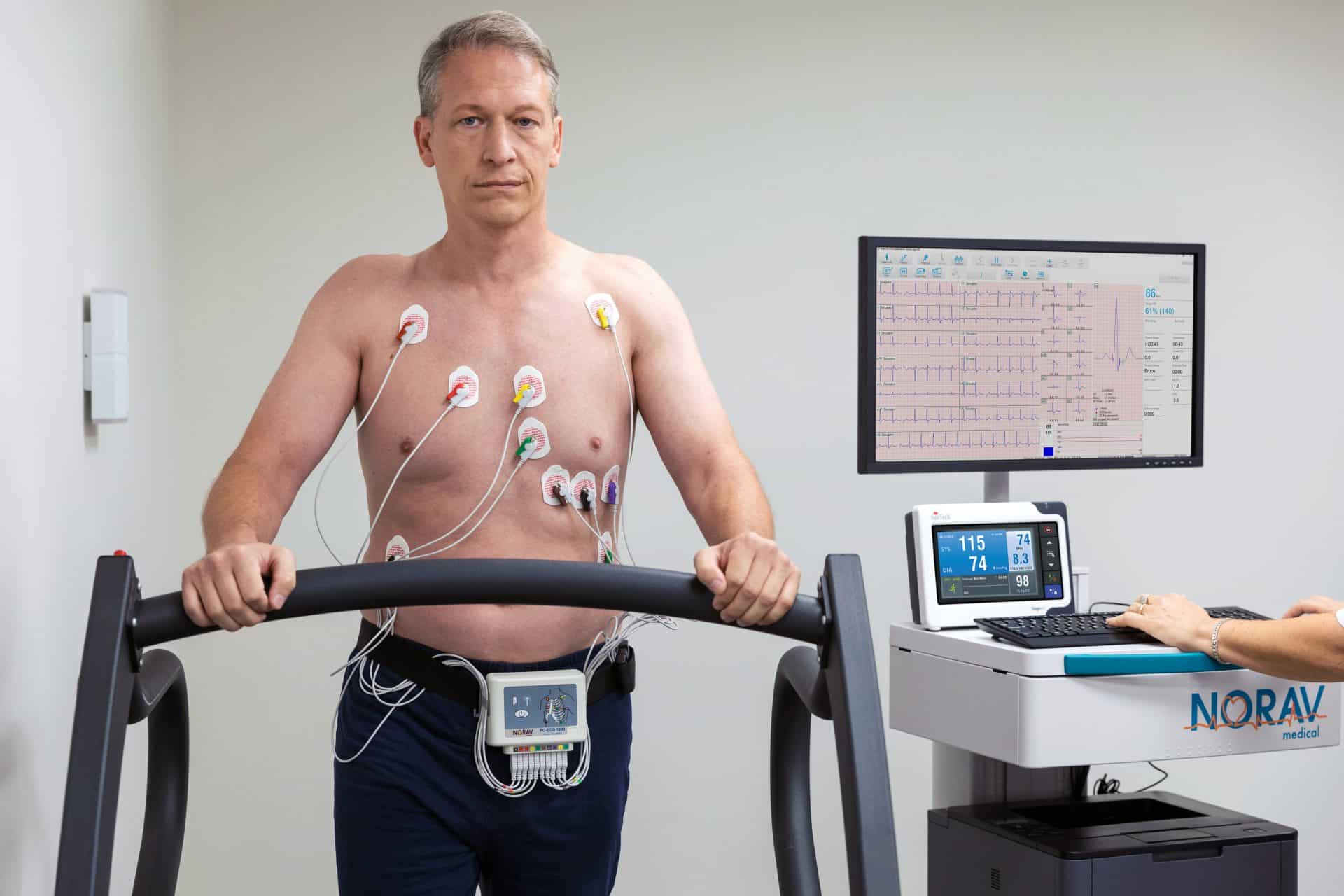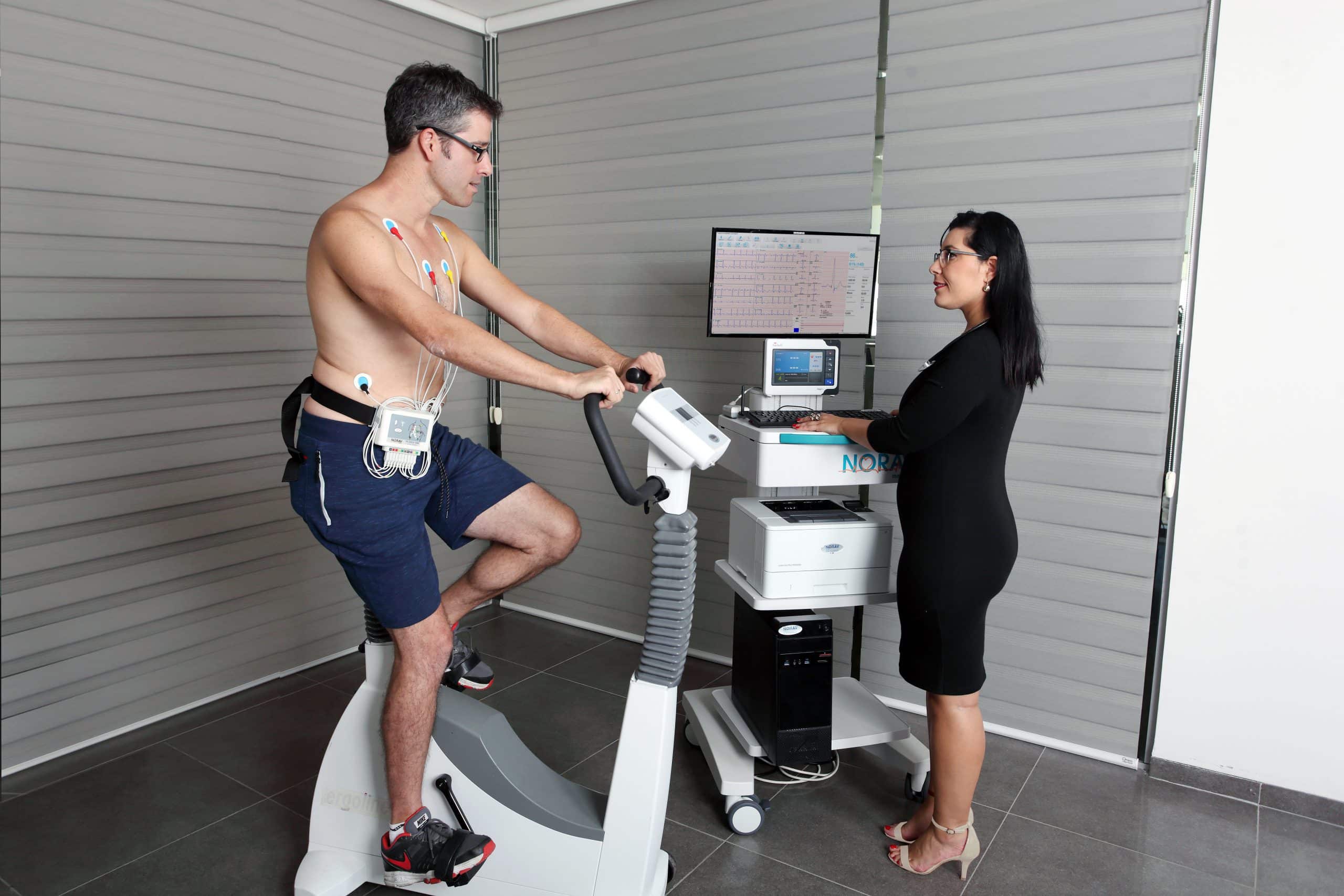EKG vs ECG—What’s the difference?

Hearing that you need a heart test like an EKG or ECG can be a bit unsettling. At Norav Medical, we understand the importance of these tests and the confusion that often surrounds their names. You may have heard these terms used interchangeably, but what do they actually mean, and is there a difference? This article will demystify these tests, explaining their significance in cardiac diagnostics and how they contribute to heart health.
What’s the Difference between EKG vs ECG?
In medical terms, EKG and ECG are actually the same tests, just called by different names. ECG, which stands for electrocardiogram, is the name primarily used in English-speaking countries. Alternatively, EKG is the German version of the word and comes from ‘Elektrokardiografi.’ Sometimes, doctors prefer to say EKG to avoid mixing it up with an electroencephalogram or EEG, a brain activity test.
Purpose of an Electrocardiogram (ECG)
The primary function of an ECG is to record the heart’s electrical activity during each contraction and relaxation cycle, providing vital insights into its health and function. The data from an ECG is comprehensive and can assist with:
- Detection of Arrhythmias: ECGs are essential in identifying arrhythmias, which are abnormalities in the heart’s rhythm. These can include conditions where the heart beats too fast (tachycardia), too slow (bradycardia), or irregularly.
- Diagnosing Coronary Artery Disease: The test plays a crucial role in diagnosing coronary artery disease, a condition where the heart’s blood supply is compromised, often due to blockage or narrowing of the coronary arteries.
- Assessing Heart Attack Risks: By analyzing the heart’s electrical patterns, ECGs can help assess the risk of heart attacks, detecting early signs of heart muscle distress or ischemia.
- Guiding Emergency Interventions: In acute medical situations, the rapid analysis provided by an ECG can be lifesaving, guiding immediate treatment decisions in emergency care settings.
- Monitoring Treatment Effectiveness: ECGs are also used to monitor the heart’s response to various treatments, including medications, cardiac procedures, and lifestyle changes.
- Tracking Post-Procedure Recovery: After cardiac surgeries or interventions, regular ECG monitoring is vital to ensure the heart is recovering properly and functioning well.
Types of ECG Examinations
ECG examinations come in various forms, each designed to assess specific aspects of cardiac health. Understanding these different types can provide deeper insight into heart function and potential issues. At Norav Medical, we specialize in a range of ECG examinations, including:
Holter ECG
This test involves a portable device that monitors heart activity continuously for 24, 48 hours, or longer period. It’s useful for detecting heart rhythm irregularities that might not occur during a standard, shorter ECG. This extended monitoring can uncover issues like intermittent arrhythmias, which are crucial for accurate diagnosis and treatment planning.

Resting ECG
Performed while the patient is at rest, the resting ECG provides a baseline measurement of the heart’s electrical activity. It’s a fundamental test for detecting various heart conditions and is often the first step in a cardiac assessment. This test can reveal abnormalities in heart rhythm, coronary heart disease, left ventricular hypertrophy, bundle branch blocks and other potential issues.
Stress ECG
Conducted under physical exertion, typically on a treadmill, the stress ECG assesses how the heart responds to physical stress. It’s particularly valuable for diagnosing coronary artery disease and other conditions that may not be evident when the heart is at rest. By increasing the heart rate through exercise, this test can highlight issues like reduced blood flow to the heart muscles, which is indicative of coronary artery disease.

Final Thoughts
The bottom line is that EKG and ECG, though named differently, serve the same crucial purpose in heart health assessment. Their role in detecting and managing a range of cardiac conditions is indispensable. However, the choice of an ECG test, whether it’s Holter, Resting, or Stress, depends on the patient’s specific health needs and the clinical outcomes desired.
Hence, it’s important for healthcare professionals to weigh the benefits and limitations of each type, ensuring that the selected test aligns with the patient’s unique medical profile for accurate diagnosis and effective treatment. This thoughtful approach is key to safeguarding patient health and enhancing the quality of cardiac care.